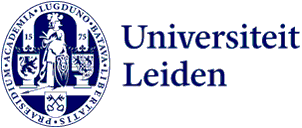
Important findings in plain language: Leiden University introduces lay talk
PhD ceremonies in the Academy Building will be much easier for family, friends and other non-specialist audience members to follow after the summer. The Doctorate Board is pleased to have decided that as of 1 September, all Leiden PhD candidates will begin their PhD defence with a lay talk. ‘It can be good way to break the ice at the start of your ceremony.’
A PhD ceremony is a celebration that is marked with special traditions. But anyone who has sat in the audience knows that the subject matter can be difficult to follow. Then a ‘lay talk’ can help: before the examining committee fires away with its questions, the PhD candidate has ten minutes to explain in plain language what their dissertation was about and what the results mean for science and society.
Rector Magnificus Hester Bijl is pleased that as of 1 September, all Leiden PhD candidates will start their defence this way. ‘Being able to translate your research into a clear and relevant story for people outside your discipline is a skill that is an aspect of your work as a researcher and therefore of being awarded your doctorate. I think it’s great that our PhD candidates will now be making the knowledge they have gained during their PhD research accessible to a non-academic audience.’

Opinion piece in Mare
The new regulations have not come out of the blue. The ball got rolling last September thanks to an opinion piece in Mare by LUMC PhD candidate Lucia Grijpink. She was inspired after attending a colleague’s PhD defence in Amsterdam − with a lay talk. ‘I sat there and thought: this is great’, says Grijpink. ‘He spoke about not only his research on viruses in blood but also his collaboration with the blood bank. I immediately started thinking about what kind of talk I would give myself someday. It was only later that I discovered that this wasn’t at all customary in Leiden. That was a real disappointment. Other PhD candidates told me they agreed.’
Grijpink, who is also researching viruses, thinks it is important that research results find their way back to the people that you’re doing it for. ‘There could be patients in the room during my PhD defence or people whose lives the findings will affect in some way. A lay talk would make the ceremony more accessible and comprehensible.’
‘It’s a moment when you make the social impact of your research clear and tell the public what you have spent all those years doing’
She received lots of positive responses to her Mare piece. One was from Max van Haastrecht, the PhD representative on the University Council. He suggested working together to make the lay talk a reality in Leiden. ‘It’s a moment when you make the social impact of your research clear and tell the public what you have spent all those years doing’, says Van Haastrecht. ‘There’s no time for that at the moment because the examining committee immediately dives right in.’
Just ten minutes
Grijpink and Van Haastrecht submitted the request to the Beadle’s Office and the Doctorate Board. While positive, they also saw practical obstacles. Specifically, a lack of time and space, says Van Haastrecht. ‘The schedule for PhD ceremonies is already very full. You might be tempted to wonder what difference an extra ten minutes would make. But in practice, this means one PhD ceremony less per day – and in a year that is suddenly rather a lot.’
To maintain the same capacity for ceremonies, it was therefore decided that as of 1 September, PhD ceremonies will also be held on Friday mornings. At present, they can only be held on Tuesdays, Wednesdays and Thursdays. Van Haastrecht is pleased with the flexibility. ‘It’s great that the Beadle’s Office has been so accommodating. They are the ones that have to make it happen.’
‘You may have found a great way to link your research to your teaching, for instance’
Recognition and Rewards
And the change has come at a good time, he says. ‘Given the results of the national elections, I think that universities will be under more critical scrutiny. That makes it all the more important to show what kind of impact our research has on the people around us. And having time for this during your PhD ceremony fits with the new Recognition and Rewards. You may have found a great way to link your research to your teaching, for instance. That is a message that you wouldn’t normally be able to get across during the ceremony.’
Grijpink is also pleased that she can now sit back and think about her own lay talk. ‘My PhD research isn’t finished yet’, she laughs, ‘but I’m already looking forward to it.’ She has one last argument: ‘A lay talk can also be a good way to break the ice. You are on your own in front of the audience and have a chance to warm up before the real ceremony begins. That’s good for the atmosphere.’
Text: Evelien Flink
Banner photo: Marc de Haan
